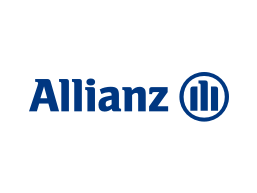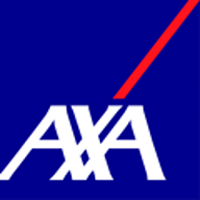All Posts in "Month: July 2021"
Royal Exchange says subsidiaries approval delay cause inability to submit results to NGX
By Favour Nnabugwu
Royal Exchange Plc has explained the reason for the company inability to present its Audited Financial Statement and Unaudited Financial Statement to the Nigerian Exchange Limited during the stipulated period.
The company says the delay in the approvals of its subsidiaed was the reason for the organisation inability to meet up with the Nigeria Stock Exchange deadline
In a statement signed by the company secretary, Ngozika Onu, the management of Royal Exchange Plc sought to advise the company’s shareholders as well as the investing public that the company is unable to submit its Audited Financial Statement for the year ended December 31, 2020, and Unaudited Financial Statements for the period ended March 31, 2021, to the Nigerian Exchange Limited (NGX) within the timeframe required by the NGX.
The disclosure stated that the Year-end audit exercise for the group is yet to be concluded as the insurance and finance subsidiaries are still awaiting approvals from their regulatory bodies, that is, the National Insurance Commission (NAICOM) and the Central Bank of Nigeria (CBN).
The company further assured its shareholders and the investing company, stating that upon the approval of the respective financial statements of both subsidiaries, the consolidation of the Group’s accounts for the year ended December 31, 2020, will be concluded and released to the public.
In addition, the Unaudited Financial Statements for the period ended March 31, 2021 will be prepared and approved by the Board of Directors for submission to the NGX and Securities Exchange Commission (SEC).
The company stated that it is optimistic that the pending financial statements would be made available and submitted on or before September 30, 2021.
Federal Inland Revenue Service generates N650bn
By Favour Nnabugwu
In a renewed efforts to take in money for the government the Federal Inland Revenue Service (FIRS) has generated N650 billion in June 2021.
Executive Chairman of FIRS, Mr Muhammad Nami, in a statement, today, as the the highest revenue realized in a single month, since the COVID-19 pandemic started.
According to him, “This feat was achieved as a result of the efficiency and effectiveness of the TaxProMax Solution, notwithstanding the challenges and resistance faced in the early stages of its adoption, and the downturn orchestrated by slow economic recovery”.
Nami recalled that as part of its efforts at modernizing tax administration in the country, the FIRS recently introduced the Tax Administration Solution (TaxProMax) for ease of tax compliance.
He stated, “The Solution “enables seamless registration, filing, payment of taxes and automatic credit of withholding tax as well as other credits to the Taxpayer’s accounts, among other features. It also provides a single-view to Taxpayers for all transactions with the Service.”
The TaxProMax platform, which took off on 7th June 2021, is a channel for filing Naira-denominated tax returns in the country.
Nami reminded taxpayers of the one-off, one-month extension granted earlier this month for the filing of Company Income Tax returns by taxpayers with December 31, 2020 accounting year-end whose statutory tax returns were due not later than 30th June 2021.
He urged them to take advantage of the extension to file up to the 31st July 2021.
END
Faces @ Heirs hosted NCRIB Brokers Evening in Lagos
CAPTIONS:
L – Managing Director, Heirs Life Assurance Limited, Niyi Onifade; President, Nigerian Council of Registered Insurance Brokers, Dr. (Mrs.) Bola Onigbogi and Acting Managing Director, Heirs Insurance Limited, Dr. Adaobi Nwakuche at the event.
L – Vice President, Nigerian Council of Registered Insurance Brokers, Tunde Oguntade; Deputy President, Rotimi Edu; President, Dr. (Mrs.) Bola Onigbogi; Managing Director, Heirs Life Assurance Limited, Niyi Onifade; Acting Managing Director, Heirs Insurance Limited, Dr. Adaobi Nwakuche and members of staff of Heirs Insurance at the event

Nine trends to watch as aviation readies for post Covid-19 takeoff, Allianz
By admin
.As more aircraft return to the skies, a new report from aviation insurer Allianz Global Corporate & Specialty (AGCS) highlights some of the unique challenges airlines and airports face as they restart operations – ranging from “rusty” pilots to insect infestations.
It also identifies a number of ways in which Covid-19 is reshaping the sector, driving long-term changes in fleet composition, flight routes and passenger demand.
“The grounding of worldwide fleets during the pandemic has represented an unprecedented event for the aviation industry,” says Dave Warfel, a Regional Head of Aviation at AGCS. “Airlines have worked tirelessly to maintain their fleets and train their crews during this long period of inactivity and, as insurers, we take a keen interest in working with them to understand their plans to return to service. Challenges will no doubt emerge as the industry readies for takeoff again. Although it is hard to predict in exactly what shape the aviation industry will return, one thing is for certain – it will have changed.”
“Rusty” pilots and the return of sightseeing flights
Earlier this year, dozens of pilots reported making mistakes, such as taking multiple attempts to land, to NASA’s Aviation Safety Reporting System, with many citing rustiness as a factor on returning to the skies. Airlines (and other operators) are well aware of the potential for pilot “rustiness” and continue to take steps to manage and mitigate these risks.
Major airlines have developed different training programs for pilots re-entering service, depending on the length of absence. “At a time of such unprecedented activity, it is comforting to know that the risk management processes that made airline travel safer than any form of travel prior to the pandemic will continue to drive an unparalleled travel safety environment in the post Covid-19 world,” says Warfel.
However, the return of sightseeing flights in tourism destinations could lead to an uptick in risk for smaller leisure aircraft, including helicopters, particularly if there is an influx of new pilots unfamiliar with the routes and terrain. There have already been a number of fatal accidents involving sightseeing flights in recent years.
* Air rage” incidents on the rise
Unruly behavior of airplane passengers is increasingly a concern, particularly in the United States. In a typical year there are around 150 reports of passenger disruption on aircraft. By June 2021 there had been 3,000 according to the Federal Aviation Administration – the majority involving passengers refusing to wear a mask. The report notes that unruly passengers may later claim they were discriminated against by the airline in these cases even when in the wrong – a trend insurers need to stay on top of.
* Perils from parked fleets
Although a large proportion of the world’s airline fleet have been – and are still – parked during Covid-19, loss exposures do not disappear. They change. Parked fleets are exposed to weather events. There have been numerous incidents of grounded aircraft being damaged by hailstorms and hurricanes.
The risk of shunting or ground incidents also increases, which can bring costly claims. There were a number of collisions at the start of the pandemic as operators transferred aircraft to storage facilities. More are likely when aircraft are moved again ahead of reuse.
Aircraft in storage typically undergo regular maintenance to ensure they are ready to return. However, never has the industry seen so many aircraft temporarily put out of service and the report notes that smaller airlines may face significant challenges when reactivating fleets, given it will be an unprecedented process.
* Pilot shortage brings risks
Odd as it may seem given the impact of Covid-19, the global aviation industry faces a pilot shortage in the mid to long-term. The tremendous increase in air travel pre-pandemic – annual air passenger growth in China alone was 10%+ a year from 2011 – meant pilot demand was already outstripping supply. More than a quarter of a million are required over the coming decade.
“In less regulated countries, shortages can lead to pilots operating commercial aircraft with limited qualifications and low overall flying time,” says Warfel. “Pilot fatigue is also a known risk among existing pilots that must be properly managed. Fortunately, there is a lot of industry expertise and resources available to assist airlines in building proper fatigue management systems.”
Some airlines are building their own pilot pipelines by establishing flight schools. Given the nature of training, flying schools are prone to accidents and claims are becoming more expensive with rising values of aircraft and increased activity. Landing accidents are most common, but insurers have also seen total losses.
* New generation aircraft bring safety improvements but higher costs
A number of airlines have shrunk their fleets or retired aircraft over the past year, as the pandemic hastens a generational shift to smaller aircraft, given the anticipated reduced number of passengers on aircraft in the short-term future.
“Newer generation aircraft bring safety and efficiency benefits,” say Axel von Frowein, a Regional Head of Aviation at AGCS. “However, new materials such as composites, titanium and alloys are more expensive to repair, resulting in higher claims costs.”
* Robust performance by air cargo and trend will continue
Although passenger travel has been devastated by the pandemic, other aviation sectors have performed more robustly, such as cargo operators. In April 2021, Asia Pacific reported its best month for international air cargo since the pandemic began, thanks to rising business confidence, e-commerce and congestion at sea ports, while Latin America to North America freighter capacity grew by almost a third in May 2021 compared to the same two week period in 2019. The report expects air cargo to continue to perform strongly.
* Business travel – boom or bust?
Pre-Covid-19 business travel traffic amounted to $1.5trn a year or around 1.7% of global GDP. With many airlines dialing back expectations in the short-term, the report asks whether those days are over. New ways of collaboration, such as video calls, proved to be effective and more companies are aiming to reduce business travel to improve their carbon footprint. Therefore, while there will be initial surge once lockdowns end, many airlines are preparing for a long-term paradigm shift in traveling, with business travel expected to be slow to pick up.
However, what speaks for a possible uptick is that some areas of business aviation have proven resilient during the pandemic. Companies that had aircraft continued to use them while many that had never purchased or chartered an aircraft before did so for the first time. Many charter companies thrived.
* New routes multiply in Europe and Asia Pacific
Over 1,400 new air routes are scheduled for 2021 – more than double those added in 2016 – driven by Europe (over 600) and Asia Pacific (over 500), with regional airports set to be the main beneficiaries. Growth in China’s domestic market alone has seen over 200 new routes added – almost the same as the US.
“This development reflects the desire of some airlines to experiment in uncertain times, particularly smaller ones,” says von Frowein. “New routes means less congested airspace and congestion at airports which can have a positive impact on risks such as ground handling incidents. However, flying new routes can bring a heightened risk environment.”
* Insect infestations affecting instrument accuracy
There have been a number of reports of unreliable airspeed and altitude readings during the first flight(s) after some aircraft have left storage. In many cases, the problem was traced back to undetected insect nests inside the aircraft’s pitot tubes, pressure-sensitive sensors that feed data to an avionics computer. Such incidents have led to rejected takeoffs and turn back events. Contamination risk increases if storage procedures are not followed.
The report also notes the aviation industry has seen relatively few claims directly related to the pandemic to date. In a small number of liability notifications, passengers have sued airlines for cancellations/disruptions.
“Covid-19 has not been a direct driver of aviation claims over the past year,” says Cristina Schoen, Global Head of Aviation Claims at AGCS. “As a result of the significant reduction in commercial airline travel during the pandemic we saw fewer attritional claims than we would during a typical year.
However, the insurance sector was not immune to larger losses during the course of the pandemic, with different regions seeing tragic accidents, emergency landings and hull losses to name a few. As air travel begins to return to pre-pandemic levels we expect claims volume to rise accordingly.”
AGCS analysis of more than 46,000 aviation insurance claims from 2016 to year-end 2020 worth more than EUR 14.5bn (US$17.3bn) shows collision/crash incidents account for over half the value of all claims. Other expensive causes of loss include faulty workmanship/maintenance and machinery breakdown.
AXA to consolidate its Asian and African
By admin
AXA is combining it business in Asia with the ones in Africa
Previously, the AXA Asia business included the markets of Hong Kong, mainland China, Japan, South Korea, Indonesia, the Philippines and Thailand.
This will now expand to include the African and Middle East markets of Algeria, Cameroon, Egypt, Gabon, Côte d’Ivoire, Lebanon, Morocco, Nigeria and Senegal. Additional Asian markets, namely India, Malaysia, Singapore and Vietnam, will also be added under the umbrella, which will be known as AXA Asia & Africa.
According to AXA, this move is part of its new strategic plan “Driving Progress 2023”, which seeks to harness the rapidly growing markets across Africa and Asia, with special focus on health, as marked by the recent opening of AXA OneHealth and its 16 clinics across Egypt. This, the company said, reflects its commitment to an inclusive vision of health equity, with improved health outcomes for all.
The AXA Asia & Africa business will also incorporate AXA Emerging Customers, the insurer’s unit focused on closing the protection gap in the low-income to mass market segments. Customers in these segments are often under-insured due to a lack of access and familiarity with relevant and affordable insurance products. By 2023, AXA Emerging Customers aims to protect 25 million customers as their first insurer, through partnerships with leading institutions from both public and private sectors.
“I am excited to be taking on oversight of our mature and emerging markets across Asia and Africa, as well as Lebanon,” said Watson. “This will enable AXA to deliver more holistic solutions that span the spectrum of customer needs, enabling us to fulfil our role as being partners in their life journey. We will continue to develop innovative, holistic solutions that will be tailored to meet the unique needs of each market. I look forward to strengthening AXA’s footprint in these key markets and consolidating our leadership in the industry.”
Watson became the insurer’s Asia CEO in 2018, presiding over a period of strong growth in the region. Before joining AXA, he held senior leadership roles in AIA and AIG across multiple continents, including Africa. Gordon is also the founding chair of the Hong Kong branch of Shared Value Initiative, a non-profit organisation that seeks to help businesses in aligning profit and purpose to address social issues.
Ghana insurance industry proffers stiffer penalty for reckless drivers
By admin
The Ghana Insurers Association (GIA), has called for stiffer penalties as statistics show that the impact of deaths caused by motor accidents was estimated at 2 percent of the country’s GDP.
Mr Kingsley Kwesi Kwabahson, GIA CEO, who made the call recently in Accra, said the association remained concerned about the staggering statistics on deaths and severe injuries associated with accidents through reckless driving on the roads, reported Ghanaweb.
He said the statistics on road crashes issued by the National Road Safety Authority (NRSA), showed that there were 10,808 crashes and 2,073 fatalities in 2019, which represented an increase of 9.8 percent and 2.6 percent respectively in crashes and fatalities over 2018.
He said that pedestrians formed the road user class with the highest number of deaths and severe injuries from motor accidents, accounting for 36.7 percent of the total number of road accident victims, followed by motorcyclists at 28 percent, and bus passengers at 14.4 percent
The Motor Traffic and Transport Department of the Ghana Police Service also estimated that there had been a total of 4,009 traffic accidents with 771 deaths in the first quarter of 2021.
Zimbabwe regulator launches integrated capital, risk programme for insurers
By admin
The Insurance and Pensions Commission (IPEC) has launched a revamped solvency management system for the insurance industry.
Dubbed Zimbabwe Integrated Capital and Risk Programme (ZICARP) Framework, the new system aims to, among other objectives, improve consumer protection and assurance to policyholders and beneficiaries, says IPEC in a statement.
ZICARP also provides incentives to insurers to measure and properly manage their risks, which enables them to absorb significant unforeseen losses.
The framework introduces a principle-based approach to regulation, moving away from a rules-based approach, to ensure better allocation of capital resources in insurance firms, align supervision of all insurance entities and make the sector attractive to investors.
The launch of the framework on 22 June 2021 is a culmination of the work IPEC began in 2015. Upon the launch, insurance companies will begin a phased implementation of the framework.
Insurers are expected to report on ZiCARP from 2022 onwards. ZiCARP is split into three pillars:
quantitative aspects where there is a need for insurance entities to determine Solvency Capital Requirement (SCR) and Minimum Capital Requirement (MCR);
Own Risk and Solvency Assessment (ORSA) that is expected to be an integral part of business strategy and must be considered when making strategic decisions;
disclosure requirements under which, various returns will be submitted quarterly and annually to the regulator.
Egypt insurance industry to maintain 16% growth in 2020
By admin
The Egyptian insurance sector is forecast to grow at the same rate this year as the 16 percent increase in premium income it showed last year, according to the theFinancial Regulatory Authority (FRA).
Mr Reda Abdel Moaty, vice chairman of the FRA area of growth is travel insurance in which premiums are expected to reach EGP1bn ($64m) a year, compared to EGP60m previously. He explains that there is a new requirement for all Egyptian passport holders to buy the cover whenever they travel. A travel insurance pool has been formed to distribute the risk.
He stresses that the FRA has taken many measures to counter the effects of COVID-19 on the insurance sector, including deferring premium payments by insurance clients and encouraging social distancing.
The regulator has also allowed the expansion of the electronic issuance of some standard insurance policies and the distribution of insurance policies through the branches of the Egyptian Post and through the Nasser Social Bank, reported Shorouk News quoting Dr Abdel Moaty.
He reveals that the FRA is studying microcredit insurance to cover the risks of non-payment. The study is carried out in coordination and cooperation with the Microfinance Union. The volume of microfinance in Egypt is EGP20bn, and the average insurance premium rate is 1.5-2%.
NAIC subsidises insurance with 50% subsidy to farmers
By Favour Nnabugwu
Nigerian Agricultural Insurance Corporation (NAIC) has said the farmers have ño need the fear about insuring the farm produce as the corporation give 50 percent subsidy to farmers
Managing Director of NAIC, Mrs Folashade Joseph, had explained to that the NAIC Act Cap. N89, Laws of the Federation of Nigeria empowers NAIC to underwrite agricultural risks and subsidise the premium chargeable on some categories of crop and livestock items by as much as 50 per cent.
She, however, said when agricultural projects are financed through credit facilities from whatever sources, they must be insured with NAIC.
On what farmers could insure against at NAIC and how to go about it, the NAIC boss said the corporation insures agriculture across the value chains, covering risks associated with primary production, transportation, processing, and storage (silos), among others.
She explained that “the perils covered by crop policy are fire, lightning, windstorm, flood, drought, pests/diseases, and invasion of the farm by wild animals.
“Losses caused by negligence or willful damage are not covered. Similarly, political risks and losses resulting from social risks like riots, mutiny, revolution are not covered under the scheme.”
In addition, Joseph said the corporation’s website also contains salient information that could guide the farmers on how to access NAIC policies.
She said: “However, all a farmer needs to do is call or go to the branch office nearest to him/her and give the detailed description of his/her farm, and NAIC officials will be there in no time. The farmer will need to complete the proposal form, after which NAIC will carry out a pre-inspection visit to the farm to assess it.
Once the farm is assessed, the premium payable would be communicated to the farmer. After the premium has been paid, the policy would be issued. It is as simple as that.”
Subsidy of 50 per cent applies to crops such as rice, maize, yam, cassava, sorghum, guinea corn, beans, soya beans, and indeed all food crops. Crops such as cashew and cocoa are on a commercial basis, and therefore attract no subsidy.
Subsidised livestock includes poultry, cattle, goats and sheep, rabbits, and fishery, among others, but dogs, camels, donkeys, and horses are categorised as commercial with no subsidy, she disclosed.
For a farmer to get compensated for farm losses, NAIC said it takes a maximum of 14 days to pay genuine claims if complete documents are made available to the corporation by the farmers or their agents. Some claims take less.










